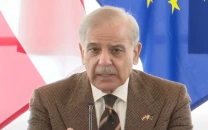To better manage the beast- the public education system
National Education Policy (NEP) 2009 highlighted the need for improvement in education management.

Delays in decision-making pertaining to teacher recruitment, deployment, improvement of infrastructure, timely disbursement of funds to districts and the like are perceived to be due to current centralized bureaucratic procedures that impede the effectiveness of education management in the public sector in Pakistan.
To better manage the education system, the National Education Policy (NEP) 2009 highlighted the need for improvement in education management. Therefore, systemic reform strategies to improve public education systems were planned in consultation with provincial governments and other stakeholders. One of the key system level changes was devolution of authority to the districts and formulation of District Education Authorities (DEA).
The aim of DEA is to regulate schools, resolve education-related issues and disburse required funds to education institutions, and ensure stakeholder participation at the local level. Accordingly, these DEAs will report to education councils that will comprise nine to 15 members including elected representatives, civil society, bureaucracy and other stakeholders. The councils will be responsible for district level planning and implementation. In addition, each school will be required to elect its Board of Directors which will be responsible for need-based teacher recruitment, performance-based evaluations and termination of services, approval of improvement of school infrastructure under the overall supervision of education councils. In essence, large-scale restructuring of education management of the public system is in order.
Relevant to devolution of authority to the district level and establishment of DEAs is the enactment of Local Government Ordinance 2001 across provinces. The provinces have revised the ordinance since then. Nevertheless, the revised act allows devolution of authority to the districts and provides an opportunity for the involvement of stakeholders and beneficiaries at the grass-roots levels. Implementation of this education reform is dependent upon the local bodies’ elections (LBE).
LBE was introduced to ensure devolution of administrative authority, management functions, diffusion of power and distribution of resources at the grass-roots level. The key benefit of this initiative in education management will be considerable reduction in delays in decision-making and need-based allocation of resources. It can also lead to innovative solutions to issues schools face on day-to-day basis such as teacher absenteeism, multi-grade teaching due to a lack of teachers and insufficient classrooms.
This school-based management initiative can help several problems – creating a roster of local substitute teachers from the locality can help address teacher absenteeism; hiring assistant teachers on ad hoc basis can help managing large classes; initiating second shifts in schools where more classroom space is required can facilitate schools manage lack of space.
The new system will allow schools to manage their budgets and fulfil their requirements without unnecessary bureaucratic delays. The schools will communicate their demand for things needed to improve schools such as missing facilities and resources at the village and UC level and communicate it to the district education authorities. The district education authorities and the education councils will then approve and provide the required funds.
Decentralization of authority will undoubtedly improve service delivery albeit its success will be highly dependent upon transparency of decision-making and an effective accountability mechanism. Unfortunately, governance and accountability have been the weakest link in the public education system that has led to its current state. The role of provincial governments will be crucial in this respect as it will be limited to financing and monitoring the standards of education.
One of the key challenges in implementing this initiative was resistance from the teacher unions who perceived DEAs as a means for increased political interference in an already politicized education system. They were also apprehensive about the possibility of privatisation of government schools and restructuring of teachers’ service structure. Surprisingly, what they do not realize is that the public education system in its current state can no longer be tolerated and maintaining status quo is not an option for the country. We cannot deprive young children from their right to quality education and a chance to a better life.
Apart from teachers’ concerns about themselves, there are two factors which hinder implementation of new strategies in the education sector. The first is the mistrust between the teaching community and bureaucracy. The second is the communication gap between the two stakeholders which gives room to mistrust, miscommunication and misinterpretation of initiatives.
Clearly, the disconnect between the education departments and teaching community impacts teacher performance adversely and needs to be reduced substantially to eliminate mistrust, resentment and misinterpretation of directives so these stakeholders can work together as a team to improve education system. Among the provinces Balochistan has succeeded in holding local government elections. Balochistan has successfully established DEAs that are empowered to function independently under the overall framework of the provincial government. Other provinces are still in the planning phase and are awaiting local bodies’ elections to take place.
Overall, school-based management has the potential to improve public schools, however, substantial training of school managers and elected representatives will be needed to reap its benefits. Success of any system lies in its implementation and the extent to which integrity, transparency and accountability measures are taken into account and followed. It is highly likely the system will be successful where elected representatives and other stakeholders adhere to high moral and ethical standards or else this initiative, though successful in other countries, will be yet another experiment on public education system in Pakistan.
The writer is an educationist and an adviser for the Aao Parhao campaign
Published in The Express Tribune, May 6th, 2015.


















COMMENTS
Comments are moderated and generally will be posted if they are on-topic and not abusive.
For more information, please see our Comments FAQ